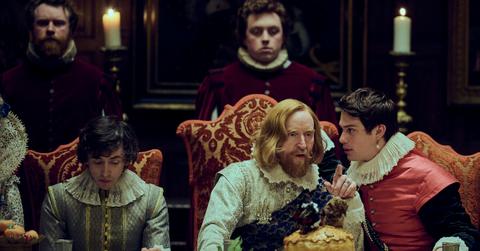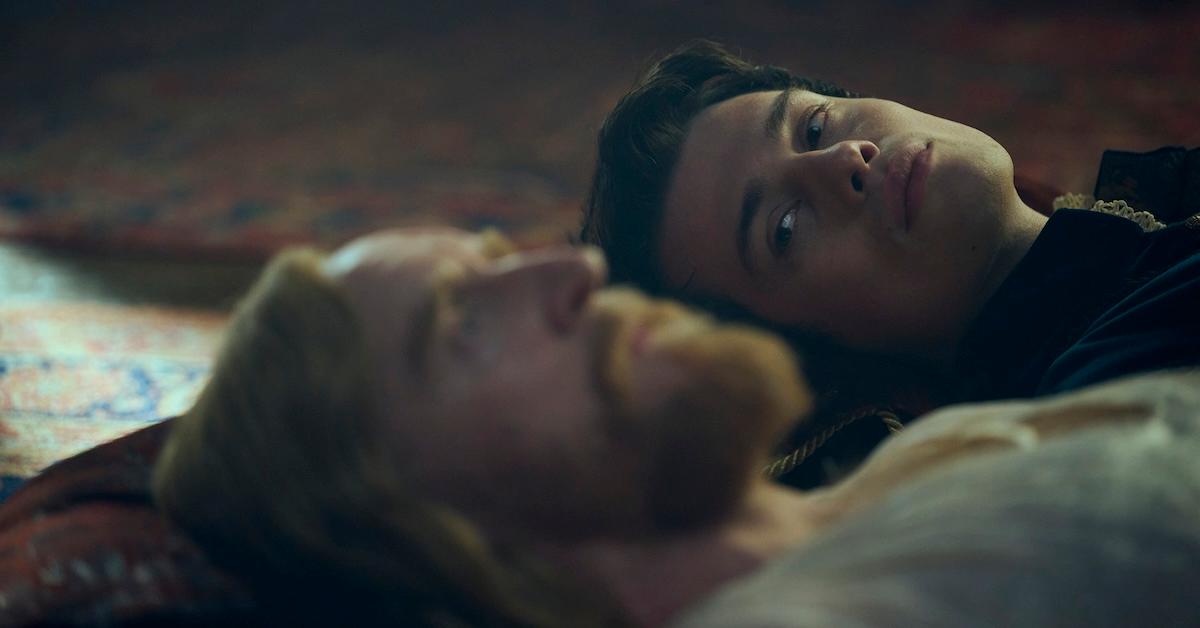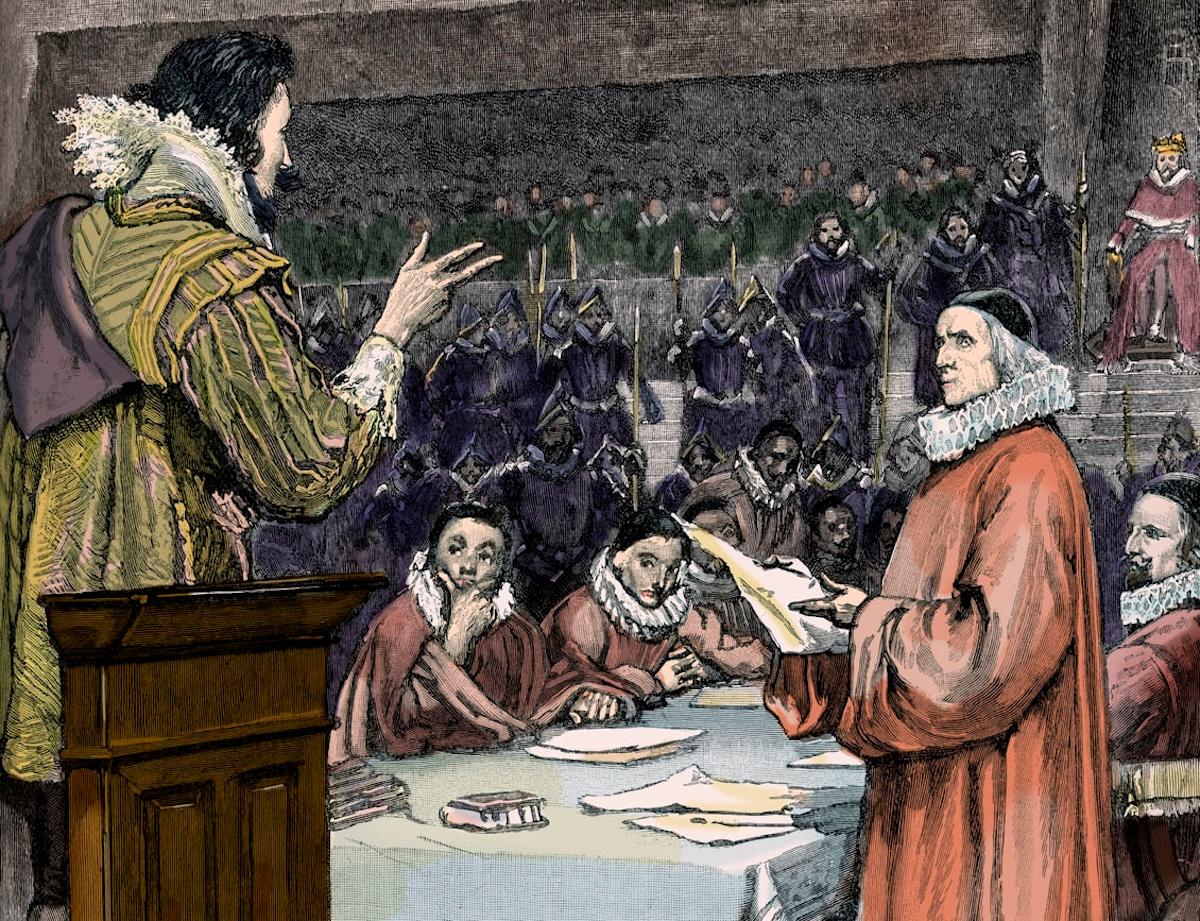'Mary & George' Chronicles the Rumored Murder Plot of King James I of England
Power. Scandals. Death plots. ‘Mary & George’ takes us into the depths of George Villiers’ intimate relationship with King James.
Published April 12 2024, 11:10 a.m. ET

Spoiler alert: This article may contain spoilers for Mary & George.
We’ve all heard about scandal and corruption in the Royal Family, but there’s so much more beyond King Henry VIII’s six wives. Centuries later, in the beginning of the Stuarts’ royal bloodline, King James VI of Scotland and I of England (we’ll just refer to him as James), inspired rumors of homosexual affairs thanks to his penchant for young and handsome men.
Starz’s newest series, Mary & George, chronicles King James’s influential relationship with George Villiers, a seemingly powerless man who amassed some sway in the royal court of the 17th century. George’s mother, Mary, brought her son from anonymity to a leadership position thanks to her plotting and scheming. And one rumored scheme is that George actually killed King James, but is that true?

George Villiers most likely did not kill King James, but there’s no way to know for certain.
The relationship between George and James took place almost 500 years ago. At this point, all we can go on are the anecdotes and records already shared, which are what inspired Benjamin Woolley’s book, The King’s Assassin: The Fatal Affair of George Villiers and James I. The book is the source material for Mary & George and revolves around George and James’s relationship before George allegedly poisoned James.
In the 342-page book, Benjamin chronicles how George fell into James’s favor. Mary’s husband had just passed away, and she and her son were in a position to lose all of their financial assets. So, she hatched a plan to get her son into the king’s good graces and confidence. Knowing that King James I surrounded himself with young and handsome men, she introduced her son, George, to the court.

James was quickly enamored with George, and despite George taking a position as the king’s bedfellows, James continued to deny rumors of homosexuality, claiming that anal sex was an irredeemable form of sodomy. On the other hand, James often acted in ways that showed disregard for rules as he felt he was above the law, perhaps both religious and state law, as evidenced in his partying reputation.
James and George got so close that George was essentially his right-hand man. But to dispel rumors of homosexuality, he compared their relationship to that of Jesus and his disciple, John. "I wish to speak in my own behalf and not to have it thought to be a defect, for Jesus Christ did the same, and therefore I cannot be blamed. Christ had John, and I have George,” he told his Privy Council in 1617.

But when it came to James’s death, many speculated that George had something to do with it, considering the fact that George was by James’s side at the time. But James long-suffered from various ailments — teeth loss, arthritis, gout, and kidney stones were frequent issues for the aging alcoholic king. As his health deteriorated, George grew closer to James’s son, Charles, to secure his place in the council going forward.
In 1625, King James fell deathly ill to a bout of malaria that caused a stroke. As George sat by James’s bedside, he gave him medicine that could have actually worsened James’s condition. Benjamin shared of George’s potential murder of James: “It may have been by accident - the application of a quack remedy while the king was weakened by a malarial attack. But there is compelling evidence that Villiers, overcome by ambition and frustrated by James's passive approach to government, poisoned him.”

George was acquitted of all accusations, although he remained unpopular throughout the country after James’s death. Many still suspected he purposely killed the king based on his own ambitions, but based on the evidence from the time, that seems unlikely. More likely is the fact that James simply fell too ill to survive past 58 years old, which superseded the life expectancy of that era by at least two decades.